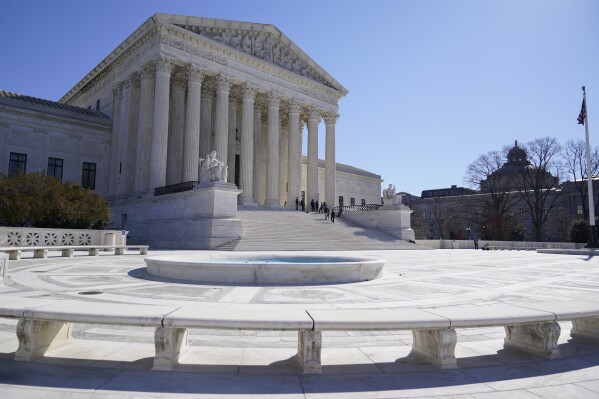New Mexico Supreme Court rules tribal courts have jurisdiction over casino injury and damage cases
ALBUQUERQUE, N.M. (AP) — The New Mexico Supreme Court on Tuesday ruled that tribal courts have jurisdiction over personal injury and property damage cases brought against Native American casinos, ending a long battle that saw pueblos and other tribes advocate for protecting sovereignty when such legal claims arise.
The decision stemmed from a 2016 lawsuit in which an employee of an electrical company claimed he was severely injured while making a delivery at Pojoaque Pueblo’s casino. The state Court of Appeals had reversed a lower court ruling that initially called for the case to be dismissed.
The tribe then asked the state Supreme Court to settle the question over jurisdiction.
In its ruling, the court pointed to previous decisions in two federal cases that effectively terminated a provision in tribal-state gambling compacts that waived sovereign immunity to allow jurisdiction to be moved from tribal court to state court for some damage claims.



One of those federal cases involved a personal injury claim involving the over-serving of alcohol at Santa Ana Pueblo’s casino. The other was a slip-and-fall lawsuit brought in state court by a visitor to the Navajo Nation’s casino in northwestern New Mexico.
Attorney Richard Hughes had filed a brief on behalf of Santa Ana and Santa Clara pueblos, with seven other pueblos signing on. He told The Associated Press on Tuesday that the ruling was significant and long overdue.
“We’ve been fighting state court jurisdiction over these cases for 20 years and so it’s the end of a long struggle to keep state courts out of determining tribal affairs,” he said.
He and others have argued that nowhere in the federal Indian Gaming Regulatory Act did Congress authorize state courts to exercise jurisdiction over personal injury claims.
The New Mexico Trial Lawyers Association did not immediately return a message seeking comment on the ruling.
Those who have advocated to have state courts hear personal injury cases contend that the people suing tribal gambling operations could face an unfair disadvantage in tribal court.
Some experts expect personal injury lawyers to opt for arbitration before heading to tribal court, but Hughes said tribal courts are “perfectly competent to handle cases like this in a very fair and equitable fashion.”
Disclaimer: The copyright of this article belongs to the original author. Reposting this article is solely for the purpose of information dissemination and does not constitute any investment advice. If there is any infringement, please contact us immediately. We will make corrections or deletions as necessary. Thank you.





